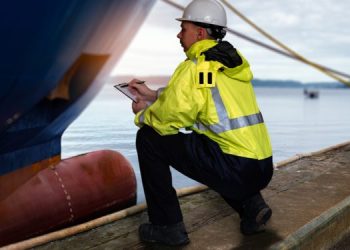Restricting CO2 emissions for shipping
 The Danish Shipowners’ Association expects the new Italian presidency to take the lead in the implementation of the EU’s MRV proposals, which will restrict CO2 emissions for shipping.
The Danish Shipowners’ Association expects the new Italian presidency to take the lead in the implementation of the EU’s MRV proposals, which will restrict CO2 emissions for shipping.
Italy took over the EU presidency from Greece on 1 July, and the Danish shipping industry has great expectations of both the Italians and, naturally, the new parliament, which will get started in earnest after the summer holidays. Italy’s tenure marks the beginning of a new presidency trio, consisting of Italy (1 July 2014), Latvia (1 January 2015) and Luxembourg (1 July 2015) respectively. This means that the Italian presidency will set the course for the Council’s programme for the next 18 months.
For many, the summer has been dominated by the football World Cup. But the Italians in particular must have had plenty of opportunity to prepare themselves for taking on their new EU responsibilities because, as you know, they checked out of the World Cup early in mid-June, following the first round of matches.
But there are now also even stronger professional reasons for the Danish shipping industry’s great expectations.
Apart from putting innovation, competitiveness and employment on the agenda, the Italian presidency also wants to focus more closely on the environment and climate. We at the Danish Shipowners’ Association are very happy about this, because it means that we can expect progress on the EU’s MRV proposals regarding monitoring, reporting and verifying shipping’s CO2 emissions.
MRV is a tool which gives an overview and provides an incentive for making further reductions in CO2 emissions. Danish shipping companies who were among the first to test the system bear witness to this, and we hope the system will be rolled out to the rest of the world once it has been implemented in the EU.
The proposal was published in June 2013 and must be passed by the European Parliament and the Council of Europe in order to be brought into force. I don’t think it would be too great a slight against the previous Greek presidency, however, to admit that the process has been anchored down for the past few months. It has never seriously been in the interests of Greece, the EU’s largest shipping nation, to put pressure on shipping companies to reduce their carbon footprint. There was also a great deal of dissonance between the view of the European Parliament and the Council’s approach thus far.
The Italians are now taking up the reigns: a brand-new parliament with plenty of energy to get to work. If the Italians live up to our expectations, MRV will finally be passed shortly after the end of the Italian presidency, namely at the beginning of next year.
Other focus areas with maritime interest include the Blue Belt initiative, which will eliminate a number of administrative burdens. Here the Italians should ensure that the entire project does not become derailed and that it gains the support of not only the entire European Commission, but also the national customs and tax authorities. Finally, work to implement the extensive free-trade agreement between the EU and the USA also has to be kicked up a gear.
It was probably not the summer the Italians would have wished for – at least not on the Brazilian football fields. We hope for a better and more rewarding autumn for the Azzuri on the pitch in Brussels.
Source and Image Credit:Danish Shipowners’ Association



























































